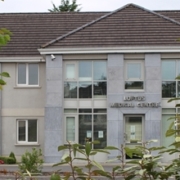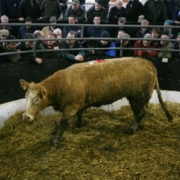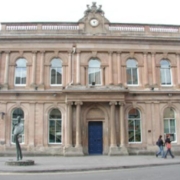Good Friday
*GOOD FRIDAY*
*Verse Before the Gospel*
Christ became obedient to the point of death,
even death on a cross.
Because of this, God greatly exalted him
and bestowed on him the name which is above every other name.
_The passion narratives are proclaimed in full so that all see vividly the love of Christ for each person. In light of this, the crimes during the Passion of Christ cannot be attributed, in either preaching or catechesis, indiscriminately to all Jews of that time, nor to Jews today. The Jewish people should not be referred to_ _as though rejected or cursed, as if this view followed from Scripture. The Church ever keeps in mind that Jesus, his mother Mary, and the apostles all were Jewish. _As the Church has always held, Christ freely suffered his passion and d_ _eath because of the sins of all, that all might b_ e saved
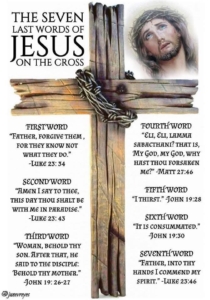
*The Gospel*
John 18:1—19:42
Jesus went out with his disciples across the Kidron valley to where there was a garden,
into which he and his disciples entered.
Judas his betrayer also knew the place, because Jesus had often met there with his disciples.
So Judas got a band of soldiers and guards
from the chief priests and the Pharisees
and went there with lanterns, torches, and weapons.
Jesus, knowing everything that was going to happen to him,
went out and said to them,
“ _Whom are you looking for?”_
They answered him,
“Jesus the Nazorean.”
He said to them, “ _I AM.”_
Judas his betrayer was also with them.
When he said to them, “I AM, “ they turned away and fell to the ground.
So he again asked them,
_“Whom are you looking for?”_
They said, “Jesus the Nazorean.”
Jesus answered,
“ I told you that I AM.
So if you are looking for me, let these men go.”
This was to fulfill what he had said, “I have not lost any of those you gave me.”
Then Simon Peter, who had a sword, drew it,
struck the high priest’s slave, and cut off his right ear.
The slave’s name was Malchus.
Jesus said to Peter,
“ _Put your sword into its scabbard. Shall I not drink the cup that the Father gave me?”_
So the band of soldiers, the tribune, and the Jewish guards seized Jesus, bound him, and brought him to Annas first.
He was the father-in-law of Caiaphas, who was high priest that year.
It was Caiaphas who had counseled the Jews
that it was better that one man should die rather than the people.
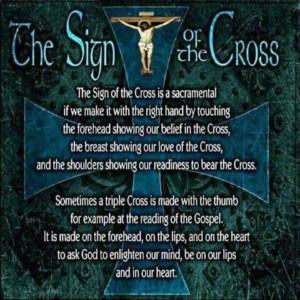
Simon Peter and another disciple followed Jesus.
Now the other disciple was known to the high priest and he entered the courtyard of the high priest with Jesus.
But Peter stood at the gate outside.
So the other disciple, the acquaintance of the high priest, went out and spoke to the gatekeeper and brought Peter in.
Then the maid who was the gatekeeper said to Peter,
“You are not one of this man’s disciples, are you?”
He said, “I am not.”
Now the slaves and the guards were standing around a charcoal fire
that they had made, because it was cold,
and were warming themselves. Peter was also standing there keeping warm.
The high priest questioned Jesus
about his disciples and about his doctrine.
Jesus answered him,
“ I have spoken publicly to the world. I have always taught in a synagogue
or in the temple area where all the Jews gather and in secret I have said nothing. Why ask me? Ask those who heard me what I said to them. They know what I said.”
When he had said this,
one of the temple guards standing there struck Jesus and said,
“Is this the way you answer the high priest?”
Jesus answered him,
“If I have spoken wrongly, testify to the wrong;
but if I have spoken rightly, why do you strike me?”
Then Annas sent him bound to Caiaphas the high priest.
Now Simon Peter was standing there keeping warm. And they said to him, “You are not one of his disciples, are you?”
He denied it and said,
“I am not.”
One of the slaves of the high priest, a relative of the one whose ear Peter had cut off, said,
“Didn’t I see you in the garden with him?”
Again Peter denied it.
And immediately the cock crowed.
Then they brought Jesus from Caiaphas to the praetorium. It was morning and they themselves did not enter the praetorium, in order not to be defiled so that they could eat the Passover.
So Pilate came out to them and said,
“What charge do you bring against this man?”
They answered and said to him, “If he were not a criminal, we would not have handed him over to you.”
At this, Pilate said to them, “Take him yourselves, and judge him according to your law.”
The Jews answered him,
“We do not have the right to execute anyone, “ in order that the word of Jesus might be fulfilled
that he said indicating the kind of death he would die.
So Pilate went back into the praetorium and summoned Jesus and said to him,
“Are you the King of the Jews?”
Jesus answered,
“Do you say this on your own or have others told you about me?”
Pilate answered,
“I am not a Jew, am I?
Your own nation and the chief priests handed you over to me. What have you done?”
Jesus answered,
“My kingdom does not belong to this world. If my kingdom did belong to this world, my attendants would be fighting to keep me from being handed over to the Jews. But as it is, my kingdom is not here.”
So Pilate said to him,
“Then you are a king?”
Jesus answered,
“You say I am a king.
For this I was born and for this I came into the world, to testify to the truth.
Everyone who belongs to the truth listens to my voice.” Pilate said to him, “What is truth?”
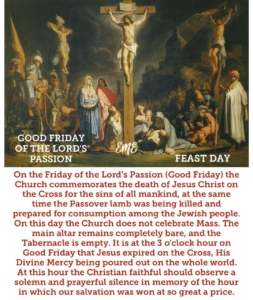
When he had said this,
he again went out to the Jews and said to them,
“I find no guilt in him.
But you have a custom that I release one prisoner to you at Passover. Do you want me to release to you the King of the Jews?”
They cried out again,
“Not this one but Barabbas!” Now Barabbas was a revolutionary.
Then Pilate took Jesus and had him scourged.
And the soldiers wove a crown out of thorns and placed it on his head,
and clothed him in a purple cloak and they came to him and said,
“Hail, King of the Jews!”
And they struck him repeatedly.
Once more Pilate went out and said to them,
“Look, I am bringing him out to you, so that you may know that I find no guilt in him.”
So Jesus came out,
wearing the crown of thorns and the purple cloak. And he said to them, “Behold, the man!”
When the chief priests and the guards saw him they cried out,
“Crucify him, crucify him!”
Pilate said to them,
“Take him yourselves and crucify him.
I find no guilt in him.”
The Jews answered,
“We have a law, and according to that law he ought to die, because he made himself the Son of God.”
Now when Pilate heard this statement, he became even more afraid and went back into the praetorium and said to Jesus,
“Where are you from?”
Jesus did not answer him.
So Pilate said to him,
“Do you not speak to me?
Do you not know that I have power to release you and I have power to crucify you?”
Jesus answered him,
“You would have no power over me if it had not been given to you from above.
For this reason the one who handed me over to you has the greater sin.”
Consequently, Pilate tried to release him; but the Jews cried out,
“If you release him, you are not a Friend of Caesar.
Everyone who makes himself a king opposes Caesar.”
When Pilate heard these words he brought Jesus out and seated him on the judge’s bench in the place called Stone Pavement, in Hebrew, Gabbatha.
It was preparation day for Passover, and it was about noon. And he said to the Jews,
“Behold, your king!”
They cried out,
“Take him away, take him away! Crucify him!”
Pilate said to them,
“Shall I crucify your king?”
The chief priests answered,
“We have no king but Caesar.”
Then he handed him over to them to be crucified.
So they took Jesus, and, carrying the cross himself, he went out to what is called the Place of the Skull, in Hebrew, Golgotha.
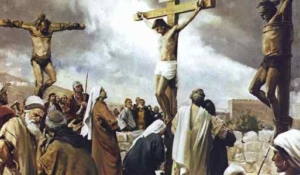
There they crucified him, and with him two others,
one on either side, with Jesus in the middle.
Pilate also had an inscription written and put on the cross.
It read,
“Jesus the Nazorean, the King of the Jews.”
Now many of the Jews read this inscription,
because the place where Jesus was crucified was near the city and it was written in Hebrew, Latin, and Greek.
So the chief priests of the Jews said to Pilate,
“Do not write ‘The King of the Jews,’
but that he said, ‘I am the King of the Jews’.”
Pilate answered,
“What I have written, I have written.”
When the soldiers had crucified Jesus,
they took his clothes and divided them into four shares, a share for each soldier. They also took his tunic, but the tunic was seamless,
woven in one piece from the top down.
So they said to one another,
“Let’s not tear it, but cast lots for it to see whose it will be, “ in order that the passage of Scripture might be fulfilled that says:
They divided my garments among them,
and for my vesture they cast lots.
This is what the soldiers did.
Standing by the cross of Jesus were his mother
and his mother’s sister, Mary the wife of Clopas,
and Mary of Magdala.
When Jesus saw his mother and the disciple there whom he loved
he said to his mother, “Woman, behold, your son.”
Then he said to the disciple,
“Behold, your mother.”
And from that hour the disciple took her into his home.
After this, aware that everything was now finished, in order that the Scripture might be fulfilled,
Jesus said, “I thirst.”
There was a vessel filled with common wine.
So they put a sponge soaked in wine on a sprig of hyssop and put it up to his mouth.
When Jesus had taken the wine, he said,
“It is finished.”
And bowing his head, he handed over the spirit.
*Here all kneel and pause for a short time.*
Now since it was preparation day, in order that the bodies might not remain on the cross on the sabbath,
for the sabbath day of that week was a solemn one, the Jews asked Pilate that their legs be broken and that they be taken down.
So the soldiers came and broke the legs of the first
and then of the other one who was crucified with Jesus.
But when they came to Jesus and saw that he was already dead,
they did not break his legs, but one soldier thrust his lance into his side, and immediately blood and water flowed out.
An eyewitness has testified, and his testimony is true;
he knows that he is speaking the truth,
so that you also may come to believe.
For this happened so that the Scripture passage might be fulfilled:
Not a bone of it will be broken.
And again another passage says:
They will look upon him whom they have pierced.
After this, Joseph of Arimathea, secretly a disciple of Jesus for fear of the Jews asked Pilate if he could remove the body of Jesus.
And Pilate permitted it.
So he came and took his body.
Nicodemus, the one who had first come to him at night, also came bringing a mixture of myrrh and aloes weighing about one hundred pounds.
They took the body of Jesus and bound it with burial cloths along with the spices, according to the Jewish burial custom.
Now in the place where he had been crucified there was a garden,
and in the garden a new tomb, in which no one had yet been buried.
So they laid Jesus there because of the Jewish preparation day;
for the tomb was close by.
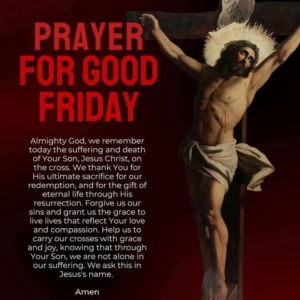
REFLECTION
Perhaps one of the most surprising practices on Good Friday is that the Mass is not celebrated. Instead, Jesus’ saving Sacrifice is commemorated by the full reading of the Passion account, the pveneration of the Cross, and the distribution of Holy Communion that was consecrated the day before.
Why wouldn’t we celebrate the Sacrifice of the Mass on Good Friday?
Saint Thomas Aquinas gives a profound answer to this question in his masterful work, Summa Theologica (See III.83). In part, he says the following:
The figure ceases on the advent of the reality.
But this sacrament is a figure and a representation of our Lord’s Passion, as stated above. And therefore on the day on which our Lord’s Passion is recalled as it was really accomplished, this sacrament is not consecrated.
A careful reading of that passage, as well as the rest of that article, tells us that there is great power in the Liturgical Year, and in our annual Commemoration of the Lord’s Passion on Good Friday.
We celebrate Mass daily throughout the year, except on Good Friday, so that we can receive the fruit of the Passion every day.
The Church teaches that Mass is an efficacious sign, meaning that the Mass both signifies Christ’s sacrifice and actually makes it present.
But on Good Friday, we celebrate our Lord’s Passion in the reality of time.
Therefore, in terms of grace, nothing is lost by the absence of Mass on Good Friday.
Instead, we must understand that the day of Good Friday itself becomes a powerful instrument of grace.
Our liturgical Commemoration of our Lord’s Passion on Good Friday enables us to share in His saving act of redemption, just as the Mass does every other day of the year.
Setting aside the profound depth of theology present in this teaching, what does this mean, practically, for those who participate in the Good Friday Liturgy today? Here are a few thoughts for pondering.
As you prayerfully participate in the Liturgical Commemoration of the Lord’s Passion, know that this day itself is endowed with grace and power. The grace does not come through the sacramental “Memorial” of the Lord’s Passion but from the reality encountered in this once-a-year Commemoration. This day itself is a real and sanctifying participation in the fruit of Jesus’ saving Sacrifice.
To better understand this, look into your own soul and consider any ways that you have experienced God’s grace powerfully and uniquely on Good Friday. Perhaps, in years past, you entered into the Triduum in a prayerful and recollected way. Call that experience to mind, and understand that this deep encounter with our Lord was especially made possible because those days are holy.
Today, as you celebrate Good Friday, understand that the floodgates of Heaven are opened to you in a way unlike any other day of the year. Seize this moment in time. Seize this once-a-year opportunity to enter into our Lord’s suffering and death. Do so prayerfully, meditatively, truly, and intentionally. Especially honor the hours between noon and three o’clock. Try to set that time aside for nothing other than prayer and recollection. This day is sanctified. Time is sanctified. By entering into prayer during these hours of sanctified time, you will discover that God is especially present to you.
Read the Passion. Pray the Stations of the Cross. Recite the Sorrowful Mysteries of the Rosary. Gaze at a crucifix. Fast, keep vigil, be attentive, and be open to the abundance of grace our Lord wishes to bestow upon you this Good Friday, especially by participating in the liturgical Commemoration of the Lord’s Passion during the sacred hours when our Lord hung on the Cross. Today, “the figure ceases on the advent of the reality.” Today, the reality is here, captured in time, made present to you. Stand before His sacred Cross, and allow His mercy to pour forth upon you from His wounded side.
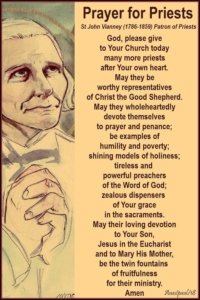
Prayer:
My suffering and sacrificial Lord, You have sanctified this day and endowed it with grace. As I commemorate Your saving sacrifice, draw me into this mystical act of love. Help me to remain prayerful and recollected throughout this day and into tomorrow. Invite me to stand before Your Cross and to gaze upon Your beaten and torn body. As I do, pour forth the abundance of Your mercy flowing from Your wounded side. Jesus, I trust in You.

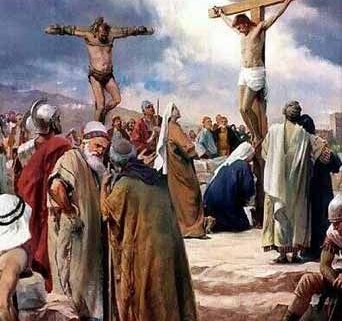
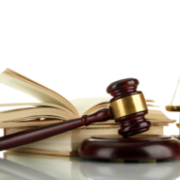 William G. Henry & Co., Solicitors
William G. Henry & Co., Solicitors Stewart Fuel Oils, Boyle
Stewart Fuel Oils, Boyle

